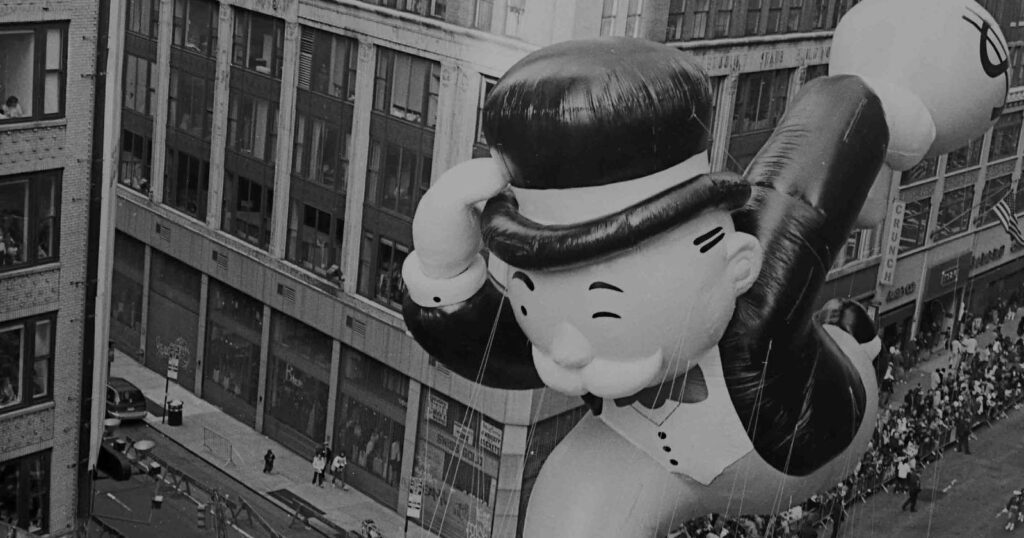Many believe billionaires are America's biggest problem, and that taking away their money would solve all of the country's problems. President Biden has proposed taxing individuals based on unrealized gains on investment income.
“It's time for the super-rich to start paying their fair share,” Biden said at a recent union rally. Many Americans agree with Biden that government must collect more money from the wealthy. Sen. Bernie Sanders seems serious about his attempt to portray billionaires as villains in society and further confiscate their wealth.
If it were a resource problem, America would have solved it all by now: The wealth accumulated by the nation's richest citizens over their lifetimes is a tiny fraction of the current spending of the federal government, and the same can be said for state and local governments.
Federal, state, and local governments have enormous resources to address social problems, and punishing the wealthy is unlikely to make much difference.
Biden's latest budget proposal calls for spending of $5.8 trillion next year. Elon Musk, the second-richest person in the world and a symbol of wealth inequality, wouldn't be able to run the federal government for two weeks with all the net worth he's accumulated over his career.
And that's just the federal government. State and local governments spend billions more. State and local governments in Michigan collect about $42 billion a year in taxes. According to an analysis of Forbes data, the combined net worth of Michigan's billionaires is $29.1 billion. Even if lawmakers confiscated all the money from every billionaire in the state, it still wouldn't be enough to fund the government for a year. In other words, Michigan's government collects more in taxes in one year than the combined net worth of all the state's billionaires in their lifetimes.
of people ask billionaire Instead, we should look to our own representatives to solve the world's ills. And it's a more advantageous approach: governments have more money at their disposal, elected officials are accountable to their voters, and are trying to pass popular policies, while billionaires, like the rest of us, spend their money however they like.
If it were just a matter of spending enough to solve society's problems, the American government could do a lot more than the country's billionaires already do. But society's problems aren't the result of a lack of resources; they persist despite the government pouring billions of dollars into well-intentioned programs.
Decades ago, lawmakers created programs to provide food to people who could not afford it, but food insecurity persists. Policymakers have criminalized gender and racial discrimination, but these types of discrimination still exist. Health care has become more affordable since Congress passed the Affordable Care Act.
These problems are complex, and throwing more resources at them is at best only one piece of the puzzle. And government doesn’t have as much power to solve these problems as it seems. Government programs can be weakened. People sell food stamps to get what they really want. Social taboos about sharing income can hide bias-based wage disparities. Increasing government payments into a health care system with rising costs accelerates cost escalation.
But all is not lost. Progress has been made, and is still being made, on society's big, complex problems. Through the efforts of philanthropists, civil society, policymakers, and us as individuals, we can make a difference, but the work is slow and requires persistent effort. Increased government spending is no substitute for the insight and persistence needed to make progress on these kinds of problems. Simply put, the problems facing society have not been solved, and they will not be solved by increased government spending alone.
Philanthropists want to use their wealth to solve big problems and make the world a better place. They usually find that their efforts are more effective when they invest in people with new ideas that address problems from a different perspective. Philanthropists sometimes work with public organizations, but they realize that there are better ways to solve the problems they care about than pouring more money into programs that governments have already created.
The fallacy that all the world's problems could be solved if billionaires paid more taxes isn't likely to go away anytime soon. Progressives will continue to make this point even when the math doesn't work, because they're too fixated on wealth inequality to recognize the vast resources of the American government. But everyone else should take a more sober approach.
We would be better able to solve society's problems if we dropped the bizarre belief that billionaires can solve everything. There are real people who care about these problems and are working hard to make things better. Progress takes time, understanding, broad societal cooperation, and hard work. It can't just be about spending more of other people's money.

